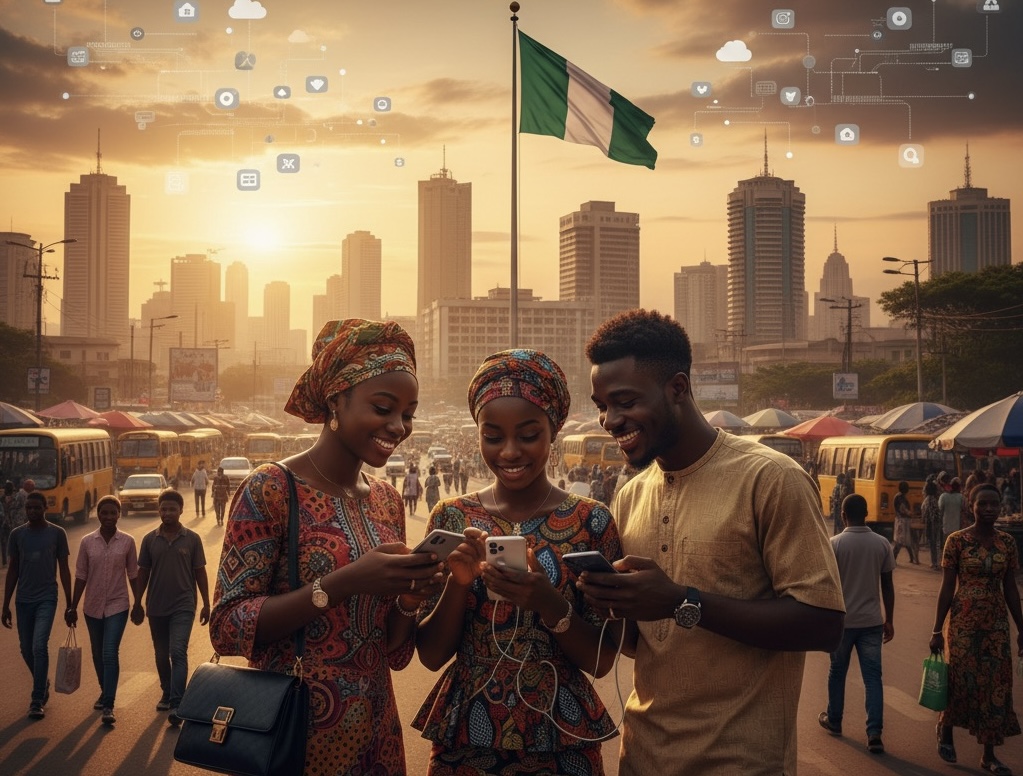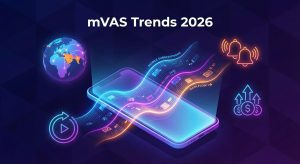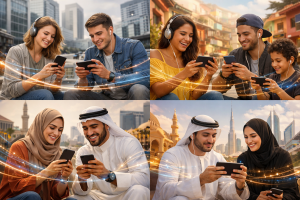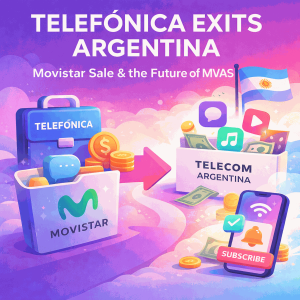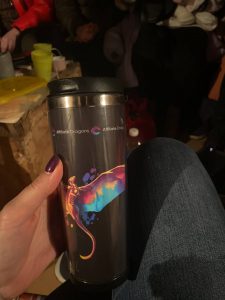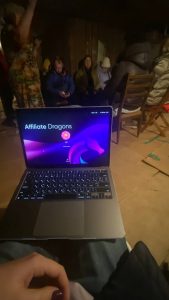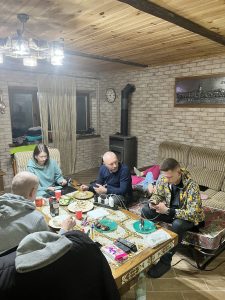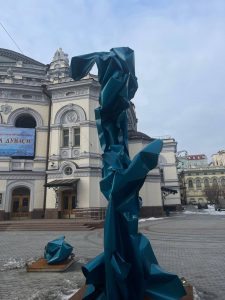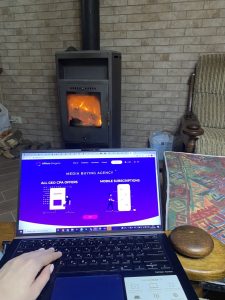Nigeria is often called the “Giant of Africa” – with over 218 million people and one of the continent’s largest telecom markets, it offers huge potential for mobile Value-Added Services (VAS). VAS refers to all the non-core telecom services that add value for subscribers beyond standard voice calls and SMS. These services have become an important revenue stream and engagement tool for operators, aggregators, and content providers in Nigeria’s mobile ecosystem. In fact, over 10.8 million Nigerians were actively subscribed to various VAS offerings by the end of 2023. MTN Nigeria alone reported ₦70+ billion (≈$170 million) in VAS revenue in 2021, a 52% jump from the prior year – underlining how significant this segment is for the industry.
In this overview, we’ll delve into the key players driving VAS in Nigeria, the popular VAS products that dominate user engagement, how these services are monetized and billed, typical pricing and revenue-sharing models, and why carrier billing (charging to a user’s phone bill or airtime) remains more prevalent than credit card payments in the Nigerian market. The aim is a clear, informative guide for VAS aggregators and industry professionals, presented in a readable, blog-style format.
Key Players in the Nigerian VAS Ecosystem
Figure: Nigeria’s mobile market share by operator (2015–2025). As of 2025, MTN and Airtel jointly command over 85% of mobile subscriptions, while Globacom and 9mobile have a much smaller share. This competitive landscape sets the stage for VAS distribution, as aggregators must connect services to each of these networks.
Nigeria’s mobile sector is served by four major mobile network operators (MNOs): MTN Nigeria, Airtel Nigeria, Globacom (Glo), and 9mobile. MTN is the clear market leader with about 52% subscriber share (over 90 million customers), followed by Airtel with ~34%. Glo has around 12% and 9mobile under 2% by 2025. These operators are the primary distribution channels for VAS, as any content or service must ultimately be delivered through their networks (via SMS, USSD, data, etc.).
In addition to the telcos, there is a large community of VAS providers and aggregators who create or source content and integrate with the operators. In fact, the Nigerian Communications Commission (NCC) recognizes four segments in the VAS value chain: the MNOs, the VAS aggregators who connect to all the operators, the content or application service providers, and the developers of the actual content and platforms. Aggregators play a critical role – they provide a single platform for content providers to access multiple networks, handling technical integrations and compliance.
Several homegrown VAS companies were pioneers in Nigeria’s VAS boom of the 2000s. By 2006, firms like MTech (co-founded by Chika Nwobi), MobileXcetera (co-founded by Tosin Onanuga), Vas2Nets, and 3WC were at the forefront of delivering ringtones, SMS alerts and other mobile content to Nigerians. These early players, often in partnership with the GSM operators, proved the demand for services beyond voice calls. “Companies like MobileXcetera, MTech, Vas2Nets and others pioneered innovative mobile content delivery models that extended the range of services available to Nigerian consumers,” recounts a telecom industry report. Their success turned VAS into a multi-billion naira business and led to the formation of industry bodies like WASPAN (Wireless Application Service Providers Association of Nigeria) to organize and regulate the growing ecosystem.
Today, Nigeria’s VAS landscape includes hundreds of licensed VAS providers (the NCC has licensed over 200 companies for VAS) and a number of dedicated VAS aggregators who have obtained special aggregator licenses since 2018–2020 when new frameworks were introduced. Notable aggregator companies active in the market include Mtech Communications Plc (one of the oldest players), Terragon (a digital content and marketing services firm), Vas2Nets Technologies, Digital Virgo Nigeria, TPay (an Africa/Middle-East carrier billing specialist), Interconnect Clearinghouse Nigeria (ICN), Nina-Jojer, NitroSwitch, and others. Many of these aggregators act as one-stop shops for content developers to reach all mobile users, since direct access to telcos is now typically funneled through aggregator platforms (by policy, e.g. MTN requires content partners to go through approved aggregators). The NCC’s VAS Aggregator Framework was established to streamline VAS connections and eliminate spam, making aggregators responsible for ensuring compliance and providing a “single pipe” into the operator networks.
It’s worth noting that the regulatory environment heavily influences who can operate in VAS. The NCC issues VAS licenses (for content services) and separate Aggregator licenses. This has redefined the “key players” to those officially licensed. The Wireless Application Service Providers Association of Nigeria (WASPAN) serves as the umbrella for these operators and liaises with regulators. Over the years, stricter rules (like the Do-Not-Disturb (DND) policy introduced in 2017 to curb unsolicited messages) have reshaped the market. The result is a more structured ecosystem dominated by the big MNOs and a cadre of licensed aggregators and content providers working in partnership. Despite some revenue challenges in recent years, the VAS sector remains a critical part of Nigeria’s telecom industry, continuing to engage millions of subscribers daily.
Popular VAS Products and Services in Nigeria
Figure: Examples of content categories offered through mobile VAS (games, music, videos, news, etc.). Nigerian VAS offerings span a wide range of subscriber interests, from entertainment to education. These services go beyond basic voice/text to deliver rich content that engages users.
Mobile subscribers in Nigeria can access an array of value-added services that cater to entertainment, information, and lifestyle needs. Some of the most popular types of VAS products driving engagement and revenue in the market include:
- Entertainment Portals & Media: Music and video services are hugely popular. Users can download or stream music tracks, caller tunes, and ringtones, or watch video clips (e.g. comedy skits, movie trailers) through mobile portals. For example, many operators offer caller ring-back tunes (CRBT) that play a chosen song to callers – a VAS that has remained a staple for years. Mobile TV and video content subscriptions (for news or entertainment clips) are available via apps or WAP portals. Nigerians love entertainment, so services like Celebrity updates, gossip news alerts, and Nollywood movie content also find an audience.
- Games and Quizzes: Gamified services attract many users. This includes mobile gaming portals (HTML5 or downloadable games) and SMS-based quizzes or trivia contests. “Predict-and-win” games around football matches or reality TV shows have been especially successful in Nigeria – dating back to early 2000s when quizzes like “Who Wants to Be a Millionaire” SMS home-play attracted massive participation. Today, users can subscribe to daily quiz challenges, puzzle games, and even interactive lotteries (often overseen by the National Lottery Commission due to prize elements). These gaming VAS keep users engaged and frequently checking their phones.
- Sports Services: With Nigeria’s huge base of football fans, sports content is a top VAS category. Subscribers can opt-in to receive daily sports news updates, live soccer scores, match highlights, and commentary right on their phones. Dedicated football subscription services deliver English Premier League news, local league updates, transfer gossip, etc., via SMS or apps. During major tournaments (World Cup, AFCON), engagement spikes through alert services and prediction games. Beyond football, there are VAS for other sports (like basketball or boxing updates), though soccer reigns supreme.
- Educational and Learning Services: A number of VAS products focus on learning and self-improvement, especially via SMS or IVR (interactive voice response). Exam preparation tips for school tests, daily vocabulary or language lessons, and general knowledge trivia are offered to subscribers for a fee. Some services target youth with JAMB/WAEC exam practice questions sent to their phones. Others provide skill-building tips (e.g. entrepreneurship guides, tech tutorials) in bite-sized messages. These educational VAS aim to make learning accessible on basic mobile devices.
- Health and Wellness: Health-oriented VAS have grown in popularity, aligning with public health needs. Subscribers can sign up for daily health tips (covering nutrition, fitness, maternal health, disease prevention), often delivered via SMS. There are also phone-based health advisory services – for example, calling a short code to consult with a doctor or receive medical advice (a premium rate IVR service category). Notably, innovative micro-insurance VAS have emerged: telehealth and insurance packages that allow users to pay small daily/weekly fees in exchange for health coverage. For instance, Globacom (Glo) recently partnered with AXA Mansard to offer Glo Health Insurance VAS plans, with subscriptions at ₦50/day or ₦300/week giving users access to telemedicine consultations and basic insurance cover. Such services leverage mobile billing to offer health benefits to the masses.
- Religious and Inspirational Content: Given Nigeria’s religious leanings, faith-based VAS are a significant segment. These include daily devotional messages, prayers, or verses sent via SMS from popular churches and religious leaders. Inspirational quotes or motivational messages also fall in this category. Many subscribers are willing to pay a small fee to receive uplifting content every morning. During religious seasons (Ramadan, Christmas), related mobile content (prayer schedules, songs, etc.) are often promoted.
- Lifestyle and Astrology: VAS that cater to personal lifestyle interests have a niche but notable presence. Horoscope and astrology updates (daily zodiac readings) are offered by some content providers, tapping into the curiosity about fortune-telling. Additionally, there are lifestyle tips services – e.g. relationship advice via SMS, fashion and beauty tips, or even joke-of-the-day subscriptions for entertainment. While these might not have the broad appeal of sports or music, they contribute to the diverse VAS mix and engage specific audience segments.
- Utility and Information Services: Beyond entertainment, many VAS address practical needs. For example, news alerts (breaking news, market updates), financial tips, and job alerts services are available. There are agriculture tips services for farmers, and even utility VAS like prepaid electricity token purchase via mobile. Caller ID and call blocking services, and other phone utilities also count as VAS in some definitions. Essentially, any service that uses the mobile network to deliver content or facilitate a service beyond standard telephony falls under VAS – and Nigerian providers have explored everything from weather alerts to mobile banking via USSD.
Notably, with the rise of internet access (Nigeria now has millions of smartphone users and expanding 4G coverage), some VAS have evolved into data-driven apps and portals. For instance, operators or aggregators run portals where users can download wallpapers, music, or videos – often free to browse, but requiring a subscription to download content. The core appeal of VAS, however, remains the same: offering personalized, engaging content that subscribers can opt into for a small fee, thereby increasing their usage of network services and providing an additional revenue stream to operators and content providers.
Monetization and Billing Models in Nigeria
A critical aspect of any VAS offering is how it makes money – i.e. the billing mechanism and user flow for charging the customer. In Nigeria, several monetization and billing models are commonly used to charge for VAS. These have evolved over time to balance conversion (making it easy for users to subscribe) with compliance (ensuring users give consent). The key models include:
- Direct Carrier Billing (DCB): This is one of the most popular methods in Nigeria. Direct carrier billing allows a user to purchase digital content or subscribe to a service, and have the charge debited from their airtime balance or added to their phone bill instantly. The user typically just confirms the purchase via their mobile phone, without needing any bank account or card. For example, clicking a “Subscribe” button on a mobile site can trigger a charge of, say, ₦50 to the user’s prepaid airtime. DCB can be implemented via various flows – often through WAP billing on smartphones or trigger through USSD/SMS for basic phones. In Nigeria, two-click confirmation flows predominate: the user clicks to buy and then confirms on a second prompt (e.g. a popup or SMS) to ensure intentional consent. This two-step DCB flow has become standard to prevent accidental charges, yet remains friction-light. The appeal of DCB is its simplicity: no need to enter card details or leave your phone – the mobile network handles the payment. As noted by industry analysis, DCB involves minimal steps and doesn’t incur extra fees to the consumer (unlike some mobile wallets that charge top-up fees), making it ideal for impulse purchases of digital content.
- PIN/OTP Verification Flows: To comply with stricter consumer protection rules, many VAS now use PIN-based verification (also known as OTP – one-time password). In a PIN submit flow, the user enters their phone number on a web form (or initiates via USSD), then receives a one-time PIN code via SMS, which they must enter back into the site or app to confirm the subscription. Similarly, an OTP verification flow might send an SMS like “Reply with 1234 to confirm your subscription to XYZ service.” Only after the user enters the correct code or replies positively is the service activated and charged. This double opt-in process ensures the person being billed is truly the subscriber and is consenting. In Nigeria, while one-click or two-click flows still exist for many services, PIN-based verification has become more common recently, especially after NCC’s 2016–2017 regulations on transparent subscriptions. The downside is a bit more friction (it introduces an extra step), but it greatly reduces accidental or fraudulent sign-ups. Many operators and aggregators have adopted PIN/OTP flows for subscription-based VAS to meet compliance standards and build trust with users.
- SMS MO and MT Billing: Before the advent of sophisticated DCB, Premium SMS was the traditional billing model. This comes in two forms:
- MO (Mobile Originated) billing: The user initiates a paid action by sending an SMS to a shortcode. For example, texting a keyword like “NEWS” to a 4-digit shortcode might subscribe you to daily news alerts, with the cost (say ₦20/SMS) deducted from airtime for that outgoing message. Each time the user sends a request, they incur a charge.
- MT (Mobile Terminated) billing: This is used for subscription services. Once the user opts in (via SMS, web, USSD, etc.), the service will send them content via SMS, and each incoming message carries a premium charge to the user. For instance, a trivia service might send a question every day and charge ₦10 per SMS received. Charges are auto-deducted from prepaid credit. Nigeria still uses SMS MT billing for many alerts and text-based content delivery, especially for users with basic phones. However, due to the DND regulations and customer wariness of spam, SMS-based billing now always requires explicit opt-in (often with a double confirmation as described). It remains an important model for text-centric services and reaches the widest user base (since it doesn’t require data connectivity).
- USSD and IVR Billing: Some VAS use USSD codes or IVR (voice) as the access channel and billing point. With USSD, a user dials a code (e.g. 1234#) to access a service menu – if the service is premium, the session can trigger a charge to the airtime. For IVR, dialing a premium short code number (e.g. a 5-digit number) might cost a certain fee per minute. In Nigeria, premium voice services exist where users call in and get charged per minute (or a fixed fee) for content like live chats, consultations, or audio entertainment. For example, a popular model in the past was dial-in radio or music streaming over IVR, or live prayer/counseling lines charged at a premium rate. While not as large as SMS/DCB in usage, these methods are part of the mix – especially for services targeting audiences that prefer voice (in local languages, etc.). They are monetized either through per-call tariffs or subscription to the service that enables unlimited access within a period.
- Subscription vs. One-Off Purchases: Most VAS in Nigeria operate on a subscription model, meaning the user is repeatedly charged (daily, weekly, or monthly) until they opt out. This ensures recurring revenue and continuous engagement (the user keeps getting new content). Common subscription cycles are daily (e.g. ₦20 or ₦50 per day for daily content), weekly (e.g. ₦100–₦300 per week for a bundle of content), or monthly (sometimes for bigger services like monthly caller tune plans). As an example, the Glo-AXA health VAS offers ₦50/day, ₦300/week, or ₦750/month options. Subscription billing is usually automated via DCB or SMS MT charges. On the other hand, there are one-off purchases as well – such as downloading a single music track for a fee, or a one-time donation/vote to a TV show via SMS. One-off VAS charges use the same mechanisms (DCB or premium SMS) but do not recur. They tend to be for content with standalone value (like a game download or an app purchase, or paying for an exam result check via SMS). While subscriptions drive the bulk of VAS revenue, one-off transactions are important for certain use cases.
Consent and user flow are crucial across all these models. In Nigeria’s post-2017 regulatory environment, the emphasis is on clear user consent – either via a second click, an OTP entry, or a confirmation SMS – before any billing. This came after complaints of inadvertent charges in the wild-west early days. As one industry source notes, the market has shifted such that even though “2-click flows predominate,” the presence of PIN/OTP steps has increased to ensure compliance. For aggregators and VAS companies, choosing the right billing model means balancing conversion (more steps usually means fewer completions) with regulatory requirements and user trust.
Pricing and Revenue-Sharing Models
Pricing (Tariffs): VAS services in Nigeria are deliberately priced at micro-transaction levels to encourage mass adoption. Given the wide range of income levels, content providers typically charge only a few naira per message or per day for their services. Common price points you’ll see are on the order of ₦5, ₦10, ₦20, ₦50 depending on the service and frequency. For instance, many daily subscription services are around ₦20–₦50 per day, while weekly services might be ₦100 or ₦200 per week. As an example, Glo’s device protection VAS and the Glo health insurance VAS are each priced at ₦50 per day (with weekly and monthly options scaled accordingly). Another example is caller-tune subscriptions, often around ₦50–₦100 per month. These low price points (just a few US cents) are feasible because of the sheer volume of users and the lower cost expectation for value-added mobile content.
It’s important to note that all VAS tariffs in Nigeria require approval by the NCC. Operators and VAS providers must file their price plans with the regulator. This is to ensure pricing transparency and prevent exorbitant charges. In practice, the prices have settled in a range that consumers find affordable for the extra value they get – typically less than the cost of a minute of voice call per day. Some services even start with free trial periods or bonus content to attract users before charging.
Revenue Sharing: Once that small payment is made by the end-user, how is the pie split among the players? The revenue-sharing model in Nigeria’s VAS industry generally favors the mobile operators, given they own the billing pipeline and subscriber relationship. A typical revenue share formula is 60/40, where the MNO keeps about 60% of the VAS revenue and the VAS provider (content developer/aggregator) gets 40%. This 40% is often further split between the aggregator and the content creator as per their individual agreement (for example, an aggregator might retain say 10-15% and pass the remaining to the content owner, or whatever is negotiated).
In the past, there have been tussles over revenue share – mobile networks at one point pushed to take an even higher cut (up to 70-75%), squeezing the VAS companies. The NCC and industry negotiations have largely settled it around 60:40 in recent years, to ensure that content providers stay incentivized. From the operator’s perspective, they justify their majority share due to overhead costs, billing infrastructure, and to cover fraud/bad debt risk. From the VAS providers’ perspective, 40% of a micropayment only makes sense at scale, so they rely on high subscriber volumes.
Sometimes, the revenue share can vary based on the service type or special deals – a very premium exclusive content might get a better split for the provider, or promotional campaigns might involve different terms. But as a rule of thumb, around two-thirds to the telco and one-third to those providing the content is the norm in Nigeria’s VAS monetization.
To illustrate the scale of revenue possible: industry reports indicated that before the imposition of strict DND rules in 2017, the Nigerian VAS sector was generating on the order of ₦330 billion annually (approx $1 billion at the time). This has since reduced (WASPAN estimated it fell under ₦100 billion after spam was curtailed), but with new services like mobile insurance, entertainment bundles, etc., the sector is recovering. The revenue share model means operators and VAS firms each stand to gain substantially from any hit service. For example, MTN’s own reported VAS revenue of ₦70 billion in 2021implies that a huge amount was also paid out to its VAS partners in aggregate (since that likely represents MTN’s share). Indeed, one report noted that content providers and VAS companies earned about ₦185 billion from MTN over a 15-year period (2006–2021).
Finally, settlement and payout cycles are part of the revenue-sharing model. Typically, the operator will collect the consumer payments (airtime deductions) and then remit the VAS partner’s share after a defined period (often monthly). There have been issues reported with delayed payments, where operators owe aggregators significant sums for months. This is an ongoing challenge in the industry – aggregators sometimes complain of “trapped funds” at the MNO side due to reconciliation or cash flow issues. Nonetheless, the business arrangements are improving with clearer contracts under the aggregator framework, and the NCC can mediate if disputes arise. For a VAS business entering Nigeria, understanding the prevailing revenue share and ensuring you have a reliable payout agreement with the aggregator/operator is crucial for sustainability.
Why Mobile Billing Dominates over Card Payments in Nigeria
One striking aspect of Nigeria’s digital economy is how carrier billing and airtime-based payments eclipse traditional bank card payments for many mobile services. If you’re launching a VAS in Nigeria, expecting users to pull out a credit card is often unrealistic – instead, the path to success is to charge to the phone. Several factors explain why mobile billing is king:
- Limited Banking Penetration: Despite growth in fintech, a large portion of Nigerians remain outside the formal banking system. Approximately 64 million Nigerian adults are unbanked, roughly 29% of the population. This means tens of millions of mobile phone users simply do not have a bank account, debit card, or credit card to make electronic payments. What they do have is a mobile phone and, usually, a prepaid SIM card. For these users, their airtime is effectively a currency. Using mobile billing allows VAS providers to reach the unbanked segment by monetizing through airtime, which can be purchased easily with cash. It bridges a financial inclusion gap – people without bank cards can still buy digital services via their phone credit.
- Prepaid Culture: Nigeria’s mobile market is overwhelmingly prepaid. Over 96.8% of mobile subscriptions are prepaid rather than contract/postpaid. This is crucial because prepaid users are accustomed to topping up their balance with scratch cards, USSD transfers, or at roadside kiosks – essentially converting cash to airtime. When it comes time to pay for a service, they naturally find it convenient to deduct from that same airtime balance. In contrast, relatively few users (the postpaid minority or those with debit cards) might attempt card payments for content, and even they often prefer the simplicity of adding it to their phone bill. The prepaid dominance means charging ₦50 to someone’s airtime is far easier and more universal than asking for ₦50 via a card transaction.
- Infrastructure and Reliability: Many Nigerians face hurdles with online card payments – internet connectivity issues, card transaction failures, OTP requirements from banks, etc., can make paying with a card (or mobile banking app) a friction-filled experience, especially for a low-value transaction. On the other hand, carrier billing works offline (no data needed for an SMS or USSD trigger) and is instantaneous. The telecom infrastructure for billing is robust after years of implementation – if a user has sufficient airtime and consents, the charge goes through seamlessly almost every time. There’s no dependence on payment gateways or banking switches that might be down. This reliability of airtime billing builds consumer confidence to use it repeatedly.
- Consumer Habit and Trust: Over time, Nigerian consumers have grown familiar with services like ringing back tones, SMS subscriptions, etc., being charged to their phone. There is a certain trust in the mobile operator handling the transaction, as opposed to entering card details on a random website (which many fear could lead to fraud). Even tech-savvy users might hesitate to use cards for small payments online due to fraud concerns, but they won’t mind using ₦50 of airtime – the exposure is limited and there’s no personal financial info given away. Also, many youths may not have cards of their own but have a phone allowance or can buy recharge cards easily. Cash remains king in Nigeria, and using cash to buy airtime (widely accessible) and then using that for digital services is a comfortable two-step that avoids the need for cards entirely.
- Mobile Money and Wallets – Still Emerging: Nigeria has been slower than some other African countries in adoption of mobile money wallets. While services exist (like Paga, or MTN’s new MoMo payment service), they are still gaining users and require separate sign-ups. By contrast, every mobile phone user already has an “account” in the form of their prepaid airtime balance. For a VAS provider, tapping into that via DCB yields far more conversions than hoping users have a funded mobile wallet or will go through a payment gateway. Moreover, even where mobile wallets are used, people often fund them with cash at agents – an extra step. Carrier billing cuts straight to the chase, leveraging the telecom billing relationship that’s already in place. As MCP Insight observes, any payment method that can be initiated with cash (and airtime is purchased by cash) is popular in Nigeria.
- Simplicity and Speed: Using mobile airtime to pay is ultra-simple for the consumer. It might be as easy as clicking “OK” on a prompt or replying “YES” to an SMS. There are minimal steps and no forms to fill. This is critical for conversion rates. If a user has to input a 16-digit card number, expiry date, CVV, then possibly wait for an OTP from their bank’s 3D Secure – all for a ₦50 service – many will abandon the process. With carrier billing, the entire transaction can happen in a few seconds on the phone. The ease of these 2-click flows means users are more likely to complete the purchase on impulse. This impulsiveness drives a lot of VAS uptake (think of subscribing to get a funny video or to vote in a contest – it needs to be quick and low-friction).
- No Additional Fees to Users: When using a bank card or certain wallet services, users might incur service charges or data costs. For example, some e-wallets charge a fee when you top them up or make payments. With direct carrier billing, the user typically pays exactly the advertised price of the service – no extra fees. If a service is ₦20/day, it deducts ₦20 from airtime, nothing more. This straightforward pricing (and the fact that telecom tariffs are regulated) makes users comfortable. They also don’t need to maintain a minimum balance or worry about bank SMS charges, etc. It’s as pay-as-you-go as it gets.
In summary, mobile billing dominates in Nigeria because it aligns with the economic realities and user behavior. A large segment of the population can only pay with airtime, and even those who have other options often prefer the convenience and trust of carrier billing. The success of the VAS industry in Nigeria – despite relatively low bank card penetration – is a testament to how well the carrier billing model has worked. By leveraging the near-ubiquity of prepaid mobile, VAS providers have unlocked revenue from a huge base of users who might otherwise be left out of the digital content revolution. As Nigeria’s banking landscape evolves, card and wallet payments may grow, but for now and the foreseeable future, any VAS or mobile content service seeking scale in Nigeria must integrate carrier billing or telecom payment flows to truly succeed.
Conclusion
Nigeria’s VAS market is a vibrant and evolving space, characterized by a partnership between telecom operators, agile aggregators, and innovative content creators. The key players – from giants like MTN and Airtel to specialized VAS firms – have built an ecosystem that delivers a rich menu of services to mobile subscribers. Popular VAS content ranges from music, sports and games to education, health and beyond, reflecting the diverse interests of Nigeria’s 170+ million mobile users. Underpinning this content is a set of monetization models that capitalize on the country’s predominantly prepaid, mobile-first economy – whether through direct carrier billing, premium SMS, or modern PIN-based subscription flows.
The pricing strategies (micro-payments of a few naira) and revenue shares (often 60/40 in favor of operators) have been honed to make business viable for all stakeholders while keeping services affordable to the mass market. And notably, mobile carrier billing reigns supreme over card payments due to Nigeria’s unique mix of limited banking penetration and strong prepaid culture – it’s the secret sauce that has enabled VAS to reach tens of millions of people who might otherwise transact only in cash.
For aggregators and industry professionals, the Nigerian VAS landscape offers both huge opportunities and some challenges. On one hand, the consumer appetite for mobile content – entertainment, information, utility – is enormous in Africa’s most populous nation. On the other hand, navigating regulatory compliance (NCC guidelines, lottery regulations for prize-based services, the DND regime) and ensuring transparent customer experiences are paramount for long-term success. The market has matured from the explosive, unregulated growth of a decade ago into a more structured, albeit still dynamic, industry.
In essence, Nigeria’s VAS sector is ripe for innovative services that can tap into local culture and needs – be it the next music craze, a life-changing education app delivered via USSD, or an insurance product riding on airtime payments. With the right partnerships (with MNOs and licensed aggregators) and a keen understanding of the local billing preferences, content providers can unlock significant value. The ecosystem is continually adapting – for example, as smartphone penetration rises (projected 140 million smartphones by 2025), we may see more app-based VAS and richer media offerings. But the core principles will remain: keep it accessible, keep it affordable, and leverage the mobile network as the conduit for digital services. Nigeria’s VAS market truly shows how mobile technology can be used to enrich everyday life – whether through a song that brightens your day, a message that keeps you informed, or a service that protects your health – all at the tap of a phone button.

